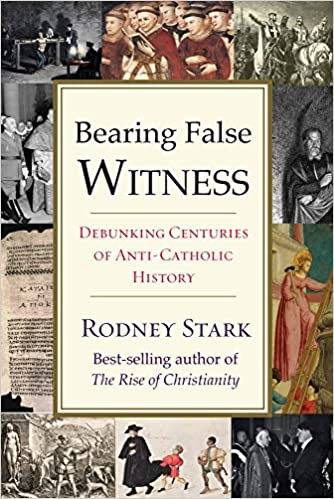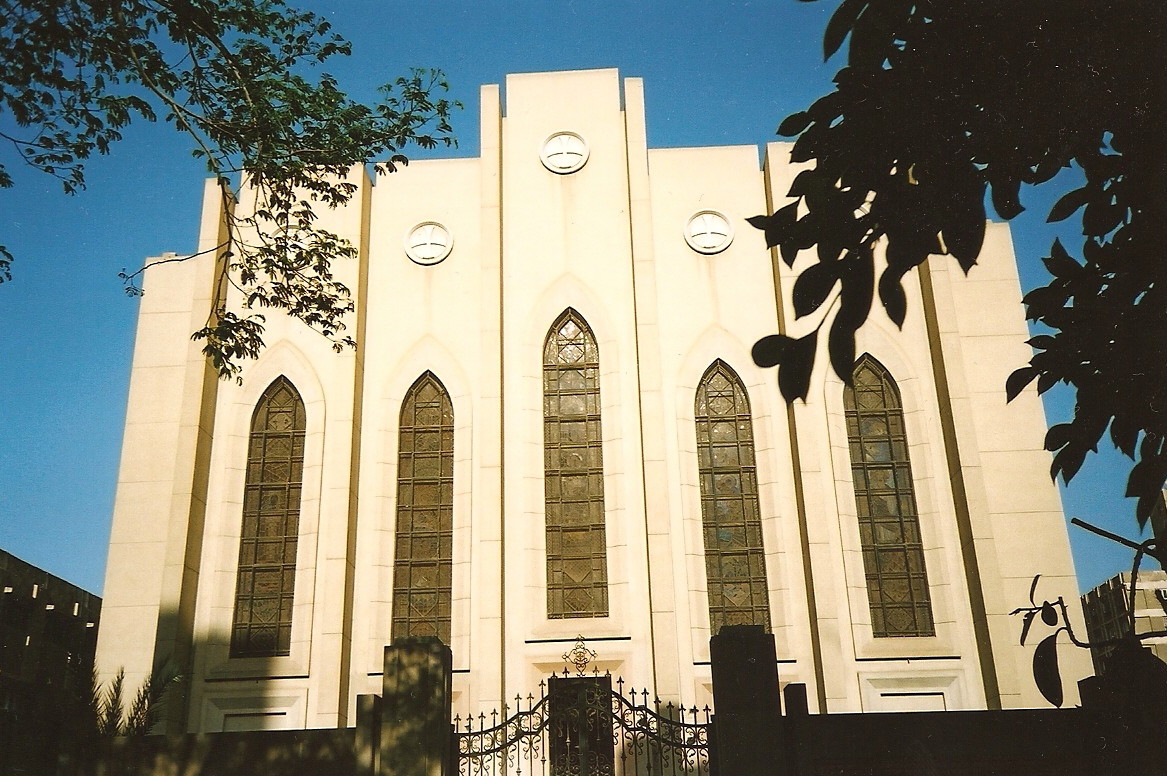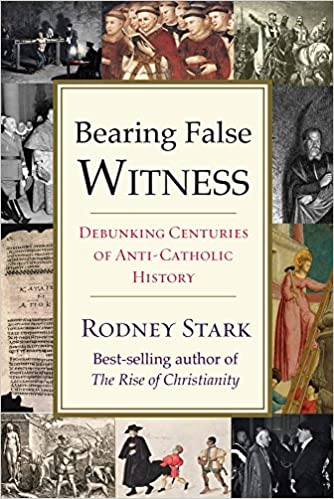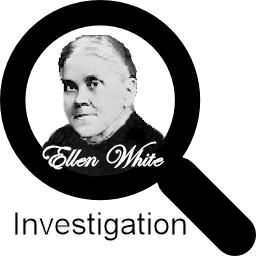It has been suggested that the persecutions by Catholics against others was perpetrated by a few crazy individuals, but was not church policy. Shall we take a look and see just a little of that history of what some here are defending as the "one true church"?
Let us look for example at the Holy Office of the Inquisition. An office by the way that still exists today albeit, unsurprisingly, under a different name. The recently retired pope Benedict being the former head of that esteemed office.
The origins of this organism can be clearly traced to 1227-1233 A. D., during the pontificate of Gregory IX. In 1229 the church council of Tolouse condemned the Albigenses in France and gave orders to exterminate them. In 1231 Gregory IX in his bull, Excommunicamus, condemned all heretics and proclaimed specific laws on how to deal with them. Among the provisions were the following:
1. Delivery of heretics to the civil power.
2. Excommunication of all heretics as well as their defenders, followers, friends, and even those who failed to turn them in.
3. Life imprisonment for all impenitent heretics.
4. Heretics were denied the right to appeal their sentence.
5. Those suspected of heresy had no right to be defended by counsel.
6. Children of heretics were disqualified from holding a church office until the second generation.
7. Heretics who had died without being punished were to be exhumed and their bodies burned.
8. The homes of convicted heretics were to be demolished. (See, G. Barraclough, The Medieval Papacy, London, 1968, edited by Thames and Hudson, p. 128; and R. I Moore,
“The Origins of Medieval Heresy”, in History, vol. 55 (1970), pp. 21-36).
In The Decretals of Gregory IX we find the following:
“Temporal princes shall be reminded and exhorted, and if need be, compelled by spiritual censures, to discharge every one of their functions; and that, as they desire to be reckoned and held faithful, so, for the defense of the faith, let them publicly make oath that they will endeavor, bona fide with all their might, to extirpate from their territories all heretics marked by the church; so that when any one is about to assume any authority, whether spiritual or temporal, he shall be held bound to confirm his title by this oath. And if a temporal prince, being required and admonished by the church, shall neglect to purge his kingdom from this heretical pravity, the metropolitan and other provincial bishops shall bind him in fetters of excommunication; and if he obstinately refuse to make satisfaction this shall be notified within a year to the Supreme Pontiff, that then he may declare his subjects absolved from their allegiance, and leave their lands to be occupied by Catholics, who, the heretics being exterminated, may possess them unchallenged, and preserve them in the purity of the faith.”
(The Decretals of Gregory IX, book 5, title 7, chapter 13).
During the pontificate of Innocent IV (1241-1253), the mechanism of the Inquisition was further developed. In the papal bull Ad Extirpanda (1252), the following provisions were given the force of law:
1. Torture must be applied to heretics so as to secure confessions.
2. Those found guilty must be burned at the stake.
3. A police force must be established to serve the needs of the Inquisition.
4. A proclamation of a crusade against all heretics in Italy. Those participating in this
crusade were to be extended the same privileges and indulgences as those who went on crusades to the Holy Land.
5. The heirs of heretics were to have their goods confiscated as well.
The Catholic Encyclopedia explains:
“In the Bull ‘Ad exstirpanda’ (1252) Innocent IV says: ‘When those adjudged guilty of heresy have been given up to the civil power by the bishop or his representative, or the Inquisition, the podesta or chief magistrate of the city shall take them at once, and shall, within five days at the most, execute the laws made against them’. . . Nor could any doubt remain as to what civil regulations were meant, for the passages which ordered the burning of the impenitent heretics were inserted in the papal decretals from the imperial constitutions Commissis nobis’ and Inconsutibilem tunicam. The aforesaid Bull ‘Ad exstirpanda’ remained thenceforth a fundamental document of the Inquisition, renewed or re-enforced by several popes, Alexander IV (1254-61), Clement IV (1265-68), Nicholas
IV (1288-92), Boniface VIII (1294-1303), and others. The civil authorities, therefore, were enjoined by the popes, under pain of excommunication to execute the legal sentences that condemned impenitent heretics to the stake”. (Joseph Blotzer, article, ‘Inquisition’, vol. VIII, p. 34).
The savagery of Innocent the IV has led the Roman Catholic historian, Peter de Rosa, to state:
“In [Pope] Innocent’s view, it was more wicked for Albigenses to call him the antichrist than for him to prove it by burning them–men, women, and children by the thousands.”
(Peter de Rosa, Vicars of Christ, p. 225).
Further, de Rosa makes this telling comment: “Of eighty popes in a line from the thirteenth century on, not one of them disapproved of the theology and apparatus of the Inquisition. On the contrary, one after another added his own cruel touches to the workings of this deadly machine.”
(Peter de Rosa, Vicars of Christ, pp. 175-176).
It was during this same period that one of the greatest dogmatic theologians in the history of the Roman Catholic Church added his support to the idea of exterminating heretics. Let’s allow St. Thomas Aquinas to speak for himself:
“With regard to heretics two elements are to be considered, one element on their side, and the other on the part of the church. On their side is the sin whereby they have deserved, not only to be separated from the church by excommunication, but also to be banished from the world by death. For it is a much heavier offense to corrupt the faith, whereby the life of the soul is sustained, than to tamper with the coinage, which is an aid to temporal life. Hence if coiners or other malefactors are at once handed over by the secular princes to a just death, much more may heretics, immediately they are convicted of heresy, be not only excommunicated, but also justly done to die. But on the part of the church is mercy in view of the conversion of them that err; and therefore she does not condemn at once, but ‘after the first and second admonition,’ as the apostle teaches. After that, however, if the man is still found pertinacious, the church, having no hope of his conversion, provides for the safety of others, cutting him off from the church by the sentence of excommunication; and further she leaves him to the secular tribunal to be exterminated from the world by death.”
(Joseph Rickaby, S. J. (R. C.), Aquinas Ethicus; or, The Moral Teaching of St. Thomas, Vol. I, pp. 332, 333. London: Burns and Oates, 1892).
The fourteenth century inquisitor, Bernard Gui explained the purpose of the Inquisition:
“the objective of the Inquisition is to destroy heresy; it is not possible to destroy heresy unless you eradicate the heretics; and it is impossible to eradicate the heretics unless you also eradicate those who hide them, sympathize with them and protect them.”
(Salim Japas, Herejia, Colon y la Inquisicion (Siloam Springs, Arkansas: Creation Enterprises, 1992), p. 20; ).
Moving on to the fifteenth century, we think of John Wycliffe. The Papacy would have been delighted to burn him at the stake during his life, but divine providence ruled otherwise. Forty years after his death, the Council of Constance (1413) ordered his body exhumed and burned. (see more on this in Foxe’s Book of Martyrs, pp. 7-8 and The Great Controversy, pp. 95-96).
Notice the words of Pope Martin V (1417-31) to the King of Poland commanding him to exterminate the Hussites:
“Know that the interests of the Holy See, and those of your crown, make it a duty to exterminate the Hussites. Remember that these impious persons dare proclaim principles of equality; they maintain that all Christians are brethren, and that God has not given to privileged men the right of ruling the nations; they hold that Christ came on earth to abolish slavery, they call the people to liberty, that is to the annihilation of kings and priests. While there is still time, then, turn your forces against Bohemia; burn, massacre, make deserts everywhere, for nothing could be more agreeable to God, or more useful to the cause of kings, than the extermination of the Hussites.” These words were written by Martin V in 1429.
Continued....





